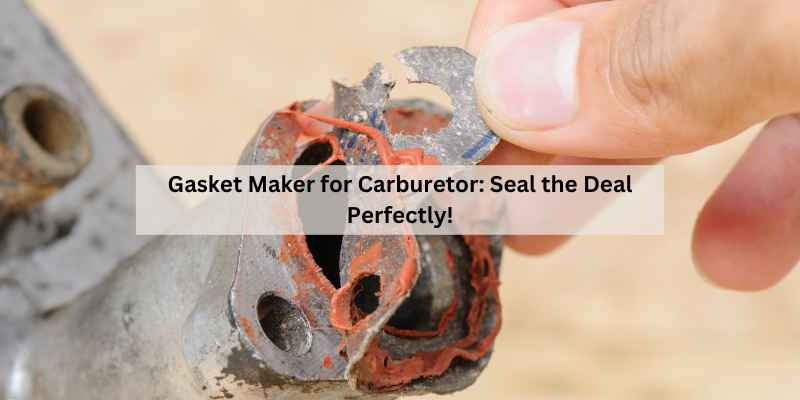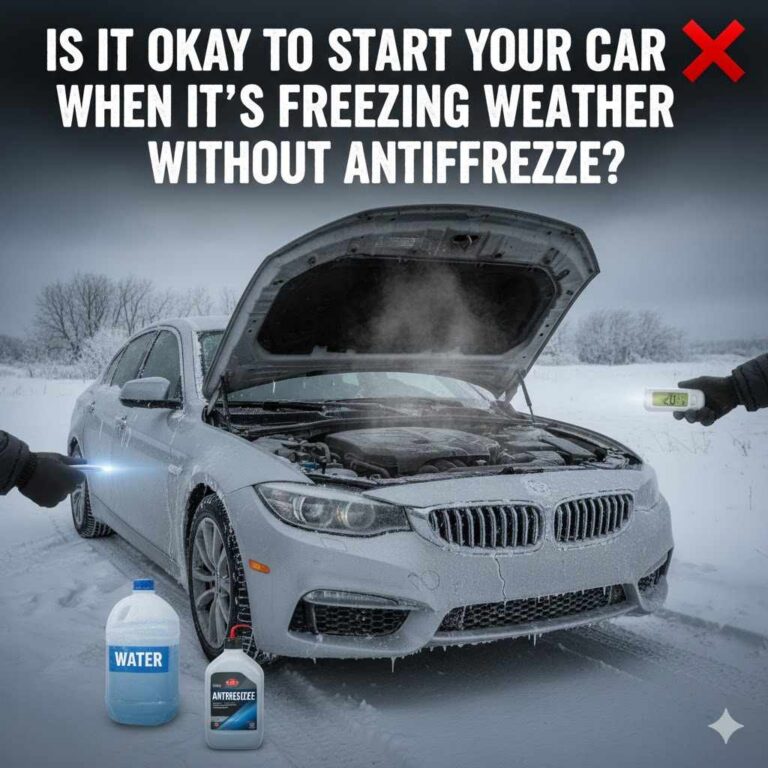Gasket Maker for Carburetor: Seal the Deal Perfectly!
Gasket maker for carburetors seals joints and prevents air leaks. It ensures optimal engine performance and efficiency.
Carburetors play a vital role in engine functionality by mixing air and fuel. A proper seal is essential for maintaining this balance. Using a gasket maker specifically designed for carburetors helps prevent leaks that can lead to performance issues. These products create a strong bond, ensuring a tight seal that withstands engine vibrations and heat.
Many gasket makers are resistant to fuel and oil, enhancing their durability. Choosing the right gasket maker not only improves engine efficiency but also extends the lifespan of your carburetor. Selecting a high-quality gasket maker is crucial for anyone looking to maintain or repair their engine effectively.
Introduction To Gasket Maker For Carburetors
A gasket maker is a special type of sealant. It fills gaps between surfaces. This helps to prevent leaks. Using a gasket maker is important for carburetor maintenance.
Carburetors need to be airtight. A good seal stops air and fuel leaks. This keeps the engine running smoothly. If leaks occur, performance can drop. A gasket maker helps to create a strong, reliable seal.
Choosing the right gasket maker is key. Look for products designed for carburetors. They should withstand high temperatures and resist fuel damage.
Types Of Gasket Makers
Silicone-based formulas are popular for their flexibility and heat resistance. They work well in many conditions. These formulas seal well and are easy to apply. They also cure quickly, which saves time.
On the other hand, anaerobic gasket makers are great for metal-to-metal applications. They cure in the absence of air, forming a strong bond. These gasket makers are ideal for high-pressure situations. They also resist oil and coolant, making them very durable.
Choosing The Right Gasket Maker
Choosing the right gasket maker is important for your carburetor. Ensure it is compatible with the type of fuel you use. Some gasket makers work better with gasoline, while others suit alcohol fuels.
Temperature resistance is also crucial. Gasket makers need to withstand high heat from the engine. Look for products rated for high temperatures to prevent failure.
| Gasket Maker Type | Fuel Compatibility | Temperature Rating |
|---|---|---|
| Silicone | Gasoline | High |
| RTV | Gasoline & Alcohol | Very High |
| Permatex | Gasoline | Moderate |
Preparation Steps
Before applying the gasket maker, clean the surfaces thoroughly. Use a scraper to remove old gasket material. Wipe surfaces with a solvent to eliminate dirt and oil. Dry the surfaces completely to ensure a strong bond.
Apply the gasket maker evenly on one surface. Use a consistent bead to avoid gaps. Press both surfaces together firmly after application. Allow the gasket maker to cure as per the manufacturer’s instructions.
Application Techniques
To create a leak-proof seal for your carburetor, start with a clean surface. Make sure to remove old gasket material. Apply the gasket maker evenly on both surfaces. Press the parts together firmly. This helps in forming a tight seal.
Curing time is very important. Follow the manufacturer’s instructions for best results. Typically, it takes about 24 hours to fully cure. Avoid using the engine until the seal is completely set. This ensures a long-lasting bond.
Tips For A Perfect Seal
To ensure a perfect seal, avoid common mistakes. Always clean the surfaces before applying the gasket maker. A dirty surface can lead to leaks.
Use the right amount of gasket maker. Too much can squeeze out and create a mess. Too little may not seal properly.
Apply the gasket maker evenly. This helps create a solid bond. Allow adequate curing time before starting the engine.
To ensure longevity of the seal, check the manufacturer’s instructions. Use high-quality products designed for carburetors. Regular inspections can help detect issues early.
Store the gasket maker properly. Keep it in a cool, dry place. Avoid extreme temperatures to maintain its effectiveness.
Troubleshooting Common Issues
Leaks after using a gasket maker can happen. This might be due to excess application or improper curing time. Always clean the surfaces before applying the gasket maker. A clean surface helps the sealant stick better.
If leaks occur, remove the old gasket maker carefully. Use a scraper or a soft cloth to avoid damaging the surface. After removal, clean the area thoroughly to eliminate any residue.
Once the surface is clean, reapply the gasket maker. Follow the manufacturer’s instructions for the best results. Make sure to let it cure completely before using the carburetor again.
Advanced Uses And Considerations
Using a gasket maker for carburetors has many advanced applications. It helps create a strong seal. This is very important for high-performance engines. A good seal prevents air leaks. Air leaks can cause poor engine performance.
Environmental factors play a big role too. Heat and humidity can affect the gasket maker. Choose a product that withstands extreme conditions. Some gasket makers resist fuel and oil. This ensures durability in tough environments.
Always follow the manufacturer’s instructions for best results. Clean the surfaces before applying the gasket maker. This ensures a proper bond. Allow the product to cure fully before starting the engine. Proper curing leads to a long-lasting seal.
Frequently Asked Questions
Can I Use A Gasket Maker For A Carburetor?
Yes, you can use a gasket maker for a carburetor. Choose a high-quality, fuel-resistant gasket maker to ensure a proper seal. Apply it sparingly to avoid clogging fuel passages. Always check the manufacturer’s recommendations before use for the best results.
What Is The Best Material For A Carburetor Gasket?
The best material for a carburetor gasket is generally cork or rubber. These materials provide excellent sealing and withstand fuel exposure. For high-performance applications, consider using silicone gaskets for enhanced durability. Always choose a gasket that matches your specific carburetor model for optimal performance.
What Gasket Maker Is Resistant To Gasoline?
The best gasket maker resistant to gasoline is RTV silicone. Brands like Permatex Ultra Black or Red, and Loctite High-Temp Gasket Maker, offer excellent fuel resistance. Always check product specifications to ensure compatibility with gasoline applications.
Is It Better To Use Gasket Maker Or Gasket?
Using a gasket is typically more reliable for sealing. Gaskets provide a precise fit and durability. Gasket makers can work for irregular surfaces but may not last as long. Choose based on the application and surface condition for optimal results.
Conclusion
Choosing the right gasket maker for your carburetor can enhance performance and longevity. Quality products ensure a proper seal, preventing leaks and air intake issues. Always follow manufacturer instructions for the best results. Invest in a reliable gasket maker to keep your engine running smoothly and efficiently.
Your vehicle deserves it.







